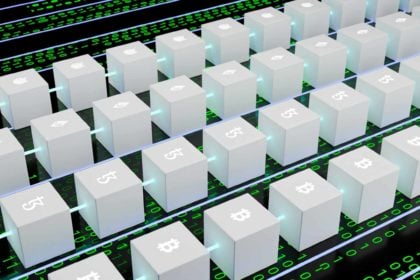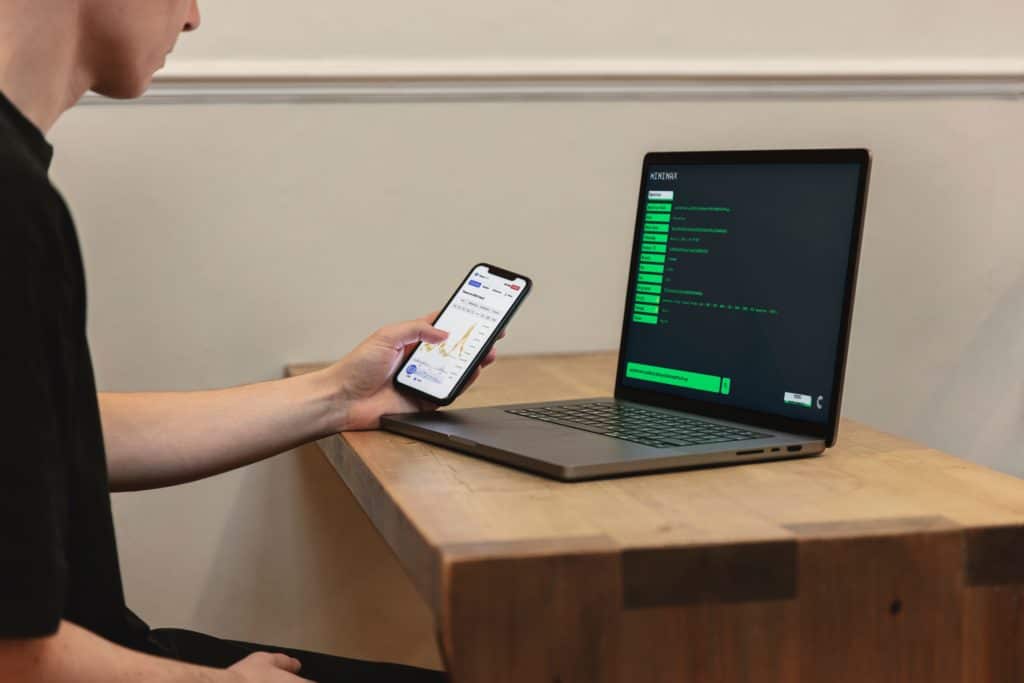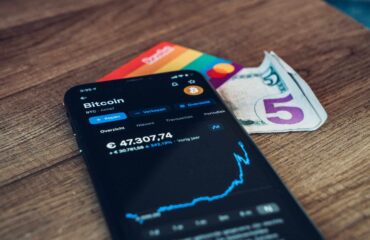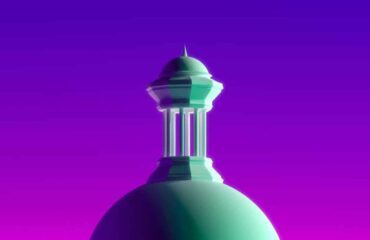
A decentralized autonomous organization (DAO) in crypto is a way of bringing together people and their interest in using the internet for the blockchain. DAOs are owned collectively and their members handle its management. That means no one person has control over the group or can make decisions without the group’s approval.
How DAOs work
The smart contract is the key piece of a DAO. The rules of the organization and the group’s funding are defined in the contract. The only way to change the rules once a contract goes live on Ethereum is by votes.
If someone attempts to do something that doesn’t follow the logic and rules that are outlined in the code, it fails. Since the smart contract also defines the treasury, money can’t be spent until the group approves it.
This enables DAOs to exist without the need for a central authority. The group collectively makes decisions and payments are authorized through passing votes. Once a smart contract goes live on Ethereum, the code can’t be edited without the notice of others. That’s because everything is public.
Why Ethereum?
The foundation for DAOs is built on Ethereum because of its many advantages. For instance, smart contract code, once live, can’t be modified by even its owners. DAOs run by the rules it was programmed to as a result. You also don’t need a trusted intermediary to manage the group’s money since smart contracts will send/receive funds.
Organizations trust Ethereum’s network because its own consensus is distributed and has been established. Finally, the Ethereum community has shown that it’s more interested in fostering a collaborative environment over the competition. Support systems and best practices emerge quickly because of it.
Types of DAO memberships
The memberships in a DAO can work differently. Based on the DAO membership, key aspects such as how voting works are determined. The common types of DAO memberships include:
- Token-based membership – In most cases, this is fully permissionless. The governance tokens can be traded on a decentralized exchange without the need to gain permission. Some might have to be earned through providing some type of “proof of work” or liquidy. Holding the token, in either case, gives you voting access.
- Share-based membership – DAO using this type of membership are still very open but have more permissions. Prospective members must submit a proposal to join the GAO. Typically an offering of something of value in the form of a token is necessary. Ownership and direct voting power are represented through shares. With their proportionate share of the treasure, members can leave at any time.

DAO vs Traditional Organizations
Here’s a comparison between the structure of a DAO and a traditional organization:
DAO
Flat and fully democratized
Voting by members required for changes
Votes are tallied and the outcome is implemented automatically; no intermediary
Activities are transparent and public
Services offered are handled automatically and in a decentralized manner
Traditional Organization
Hierarchical
Changes might be from a sole party or determined by a vote
Votes are tallied internally when voting is allowed and the outcome of the vote is handled manually
the Services offered require human handling or there’s a centrally controlled automation
Activities are limited from the public and generally private
History of DAO
DAOs have come into the news in recent times with the rise of cryptocurrency, the blockchain, NFTs, and other organized projects that started on the internet. The online community from Reddit bought shares of companies like Gamestop and AMC that inflated its stock price for weeks. In most cases, the goal of a DAO is to raise money for a specific goal.
In the world of crypto, the DAO started as a great concept that was implemented into blockchain technology. Entities that are part of decentralized autonomous organizations operate through smart contracts.
Creation of The DAO
The Decentralized Autonomous Organization (The DAO) started in May of 2016.
A few members of the Ethereum communication announced the inception of The DAO. It was intended to operate similarly to a venture capital fund except it was a party of the decentralized and crypto space.
In theory, its structure was intended to reduce costs, while providing more control and access to investors through its lack of a central authority. The DAO eventually became known as Genesis DAO and was built on the Ethereum blockchain as a smart contract.
During what was called the “creation period”, anyone could send Ether to a unique wallet address in exchange for DAO tokens. These tokens were based on a 1-100 scale. During this creation period, The DAO gathered 12.7 Ether which was equivalent to $150 million.
The platform allowed anyone to pitch their idea to the community to potentially receive funding. Individuals with DAO tokens could vote on proposed plans. If the project was profitable, they would be rewarded. It appeared to be a very successful endeavor until June 2016.
A loophole in the coding that a hacker found allowed him to take funds from The DAO. About 3.6 million Ether was stolen (equal to $70 million at that time). The hacker was able to steal the funds by “asking” the smart contract to give the Ether back several times before its balance could update.
Coders who created the DAO smart contract didn’t take into consideration a recursive call and that smart contracts sent ETH funds first before updating the internal token balance. It was the flow of coding that opened the opportunity for the hack.
Fortunately, the funds were subject to a 28-day holding period. The hacked funds were sent to an account that was available to the original owners. The token owners were offered the same rate they were given during the initial offering of 1 ETH to 100 DAO tokens.
The hack was the key reason for the ultimate fall of The DAO. Poloniex, a cryptocurrency exchange, delisted DAO tokens in 2016, with Kraken following suit shortly after. The United States Securities and Exchange Commission (SEC) released a report in July 2017 that essentially said that The Doa’s offerings were subject to the same regulatory principles of companies that start the process of initial public offerings.

Impact of The DAO
Despite The DAO project becoming defunct, it continues to impact the cryptocurrency space. The DAO’s fate made it clear how important it was for blockchain development teams to establish secure platforms. Blockchain startups are also now using inventive ways to avoid federal regulation and security registration.
DAO Examples
Before diving into examples of DAOs in crypto, let’s talk about a few more mainstream use cases. A charity is one such example. A charity organization is one where you can accept memberships and donations from people around the world. The group can also decide how to spend those donations.
Another example is found with ventures and grants. Venture funds pools investment capital and investors can vote on what ventures to back. Profits and repayment is later distributed to the members. Now let’s talk about DAOs in the crypto space:
MolochDAO
This DAO focuses on funding Ethereum projects. It is self-organized and helps develop public infrastructure for ETH 2.0. It’s simple, open-source framework provides it with good security (fewer bugs), usability, and extensibility.
The first Moloch DAO was summoned on February 14, 2019. To date, it has funded over 20 critical Ethereum infrastructure grants that total nearly $300,000. Moloch uses a Minimum Viable DAO design, which helped popularize it.
MakerDAO
MakerDAO develops technology on the Ethereum blockchain that supports borrowing, savings, and a stable cryptocurrency. MKR, which is MakerDAO’s token, is widely available on decentralized exchanges. Anyone who buys its tokens is given voting power on the Maker protocol’s future.
Made up of smart contract service, MakerDAO manages borrowing and lending. It regulates the value of loans using MKR and DAI (its other currency). MakerDAO essentially cuts out the middle man when it comes to traditional lending through financial institutions). It’s part of the movement known as decentralized finance (DeFi).
Spice DAO
This decentralized autonomous organization was founded by Soban “Soby” Saquib along with a group of other crypto enthusiasts. In 2021, it raised almost $12 million in cryptocurrency. Similar to many other DAOs, Spice DAO is largely organized on a Discord server.
Four team members manage its server. Periodically, the group puts community votes on Snapshot where members can pledge tokens, called $Speice toward an answer. Spice DAO gained its notoriety when it bought a Duen script bible for $3 million.
Benefits of DAO
If you’re looking to start an organization with others, you must have a lot of trust in those people you’ll be working with. This is especially true when it involves funding and money. Here are a few of the reasons why DAOs are a beneficial way to structure an organization
Takes Control out of a Small Group of People
In traditional business models, businesses are controlled by a small group of people. In some cases, it might even be one person that controls it. There are many problems with this approach. The biggest disadvantage is that the views and accounts of all members of the organization aren’t taken into consideration. A DAO structure enables everyone’s opinion to be heard.
Increased Transparency
A DAO is a decentralized governance structure that gets rid of managerial staff through system automation. That saves money on potential salaries. The work that’s accomplished is fast due to automation. You don’t have to wait for an employee to process an application to learn key information for a step.
Driven by the Community
DAOS makes it easy for communities across the world to connect and share in a vision. As long as you have governance tokens and internet access, you can participate in building the next chapter of Web3. Participating in a DAO is much like owning a stock in a company. You have a sense of ownership while having the possibility of financial rewards.
Participants have “Skin in the game”
Each participant has “skin in the game” which helps ensure that votes are thoughtful. When DAOs use governance tokens, users must spend their tokens to cast votes. Essentially, governance tokens empower users with the ability to affect the DAO’s future.
Additionally, votes on the blockchain are public. That means when a user votes they are putting their reputation out there for the public to see.
Opportunities of DAO
Implementing a DAO structure has many great benefits. It also comes with some disadvantages as we can see from its history. Below are some of the disadvantages to be aware of.
Security isn’t Guaranteed
When a DAO makes a mistake in the code, that could lead to huge losses. Nowhere is this more clear than with the case of The DAO in 2016. When hackers found a vulnerability in the code, they almost got away with a large portion of its funds. In the end, developers can’t guarantee that a DAO is completely secure and safe from potential hacks.
Majority Rules
DAOs are structured so that the opinion of the majority is the winner. This structure does reduce the chance of collusion with the public. However, that does not mean that this risk is completely eliminated.
Project decisions can sometimes take a while
Votes can’t always be collected quickly as you would expect through the system. Additionally, some critics argue that decentralized autonomous organizations are “dehumanized”. Critical thinking is not part of the logic of automated systems. Hence for unique situations or a crisis, the system’s ability to properly manage the project.

Future Impact of DAOs
The first fully functional DAO is typically considered to be BItcoin. It had its programmed rules, functioned autonomously, and used a consensual protocol to coordinate. However as we’ve seen with The DAO example, there are certain issues associated with using a DAO platform.
We’ve experienced a renewed interest in DAOs with the growth in popularity of Decentralized Finance (DeFi) and non-fungible tokens. DAOs are used for many different purposes including investments, fundraising, borrowing, charity, and buying NFTs. These activities all occur without the need for a trusted intermediary.
Jenny DAO purchased its first NFT in May 2021. It was an original song created by 3LAU and Steve Aoki. Jenny DAO provides fractional ownership to NFTs. Many creators are using DAOs to engage with consumers. With the coming of the metaverse, DAOs seem poised to continue their growth in the future.
How to Get Involved
Getting involved with a DAO when you’re new to the concept takes a little bit of homework. If you’re interested in joining a DAO, below are some guidelines on how to get started.
- Determine your goals – The DAO that you join should meet your personal passions and expertise. These organizations are very mission-driven. Thus, take some time to reflect on what is important to you.
- Search for a DAO that aligns with your goals – There is a diverse number of DAOs out there. Look for ones that fit into your ideals and passions. The majority of DAOs have a charter or mission statement that explains what their goals, guidelines, etc. are.
- Join a community – The DAO’s culture is better understood by participating in the community. Most DAOs have a Discord that you can join and get into conversations to get a better sense of the community.
- Participate – Developers aren’t the only ones with skill sets that can contribute. Review the community’s needs and governance and evaluate your abilities to get involved accordingly.



